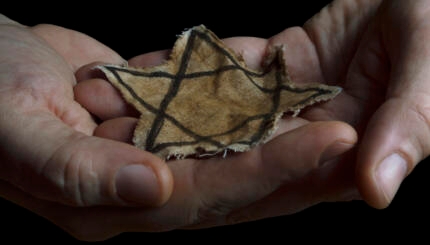I have a rich undergraduate memory of a professor teaching about communities. She said that one of the key aspects to defining a community is that it has its own calendar. As North American Jews, we are deeply aware of this truth. At times we struggle to coordinate one calendar/community with another calendar/community. This is most challenging when we have to take time from our “work” calendar to spend time in our “religious” calendar — such as at Rosh Hashanah when it falls in the middle of a week.
When is Rosh Hashanah 2015? Click here to find out.
In recent years I have been thinking about my community. I am Orthodox, committed to halakha (Jewish law), liberal, vocally supportive of the State of Israel, and interested in sharing my life with like-minded individuals. When I look around I can find people, institutions, and literature that are part of my community — but I can’t find a calendar.
There are excellent luchot, liturgical calendars, for Jewish communities. There are Orthodox and Conservative versions. There are luchot for Israel and for the Diaspora. But, until now, there has never been a luach for Diaspora Jews that is both Orthodox and committed to the State of Israel as a religiously significant reality.
Enter a project I have undertaken — Luach Torat Israel. Over the past several months I have been working to write a luach that will serve the community to which I belong. Before explaining what makes this luach special let me take a moment to explain what a luach is.
Jewish ritual life is exceptionally complex. Some aspects of it are static from year to year — pork is still not kosher and bread is still chametz. Prayer services and liturgical obligations, however, do change from year to year. The most simple reason being the fact that holidays fall out on different days of the week. For example: this past year, and next, Tisha B’Av is commemorated on Sunday even though the 9th day of Av is actually on Saturday. In coming years, Tisha B’Av will fall on a weekday and the procedures will vary slightly.
The luach is where we look for concise information about practices that change from year to year. Other information that can be found includes: when and how to light candles, which blessings to make, which kiddush is recited for this holiday, what type of havdalah should I be making, when do I burn my chametz, and myriad other issues.
So this new luach, Luach Torat Israel, will encompass all the information that is in more traditional luchot, but also includes some important innovations.
- Torat Israel is the first luach for North America’s Orthodox community that references the State of Israel. The luach is also the first to prescribe religious observances for Yom HaAtzmaut, Yom HaZikaron and Yom HaShoah (Israel Independence Day, Israel Memorial Day, and Holocaust Remembrance Day).
- In recognition of the growing preponderance of Women’s Prayer Groups and Partnership Minyans within the Orthodox community, Torat Israel is, almost entirely, gender neutral.
- Shaliach Tzibur/Shlichat Tzibbur the gendered terms for “prayer leader” are replaced throughout with the well-known acronym – shatz.
- Rather than referring to a man or woman being called up to read the Torah, the term עולה (ayin vav lamed heh) is used throughout. The word could be vocalized as oleh – masculine, or olah – feminine.
- A readable and user-friendly text are paramount in publishing. Thus rather than making the luach more complex by including practices and ritual stringencies that have fallen from normative Modern Orthodox practice, we have relegated them to briefer notes. This includes: fasting on the day before Rosh Hodesh, fasting in the weeks following holidays, etc.
These innovations are significant, and they reflect one of my educational mottos: taking the implicit and making it explicit. The innovations reflect the beliefs of the majority of the people in the religious community in which I practice. The luach that is currently most popular speaks volumes with its silence about Israel and about women.
At present, Luach Torat Israel is being published as a digital subscription. A PDF is distributed monthly via email or direct download. Users are encouraged to send all manner of feedback. Luach Torat Israel is free this year. Users are encouraged to make a donation to offset costs we are incurring but no one is required to pay. The longer term will see Luach Torat Israel published in various electronic and print media as well as in custom formats for synagogues and ritual communities.
This project is an opportunity to consolidate communities of practice and belief around the core tenets of Modern Liberal Orthodoxy: commitment to halakha, commitment to the State of Israel, commitment to Religious Feminism, and commitment to serving God in the best way that we can.
I hope that this one small book can begin to make a big change.
Please visit www.luachtoratisrael.com for more information and to download.
Av
Pronounced: ahv, Origin: Hebrew, Jewish month usually coinciding with July-August.
Rosh Hashanah
Pronounced: roshe hah-SHAH-nah, also roshe ha-shah-NAH, Origin: Hebrew, the Jewish new year.



